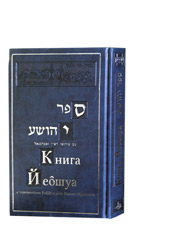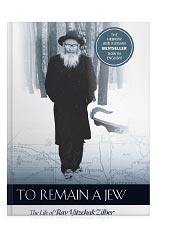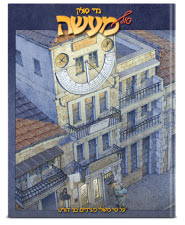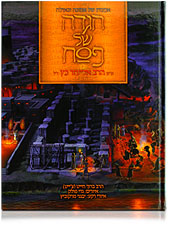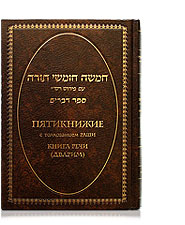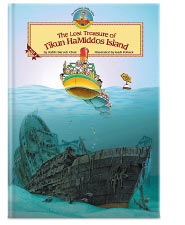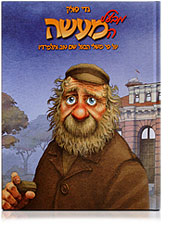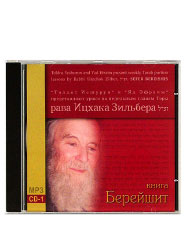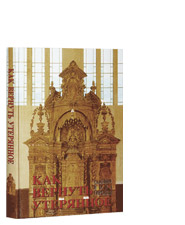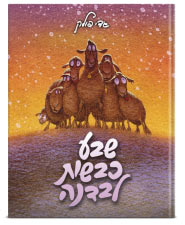
Speech of HaRav Sholom Kamenetzky shlit"a at a Toldos Yeshurun Event
In Eretz Yisroel the Russians make up quite a considerable amount of the population, and once that sleeping giant is woken, there will be a whole stream of yiddishkeit
The truth is that there are organizations and there are organizations. I have heard about Toldos Yeshurun from the periphery here in
Who does not know the legendary stories of mesirus nefesh that Reb Yitzchok had in Russia, the mesirus nefesh that he had to be moser the Torah that he took from his father, the Rav, the chashuva talmid chochom, privately taught mi’av le’ben, and then to be moser the mesoras haTorah to his ben, to Rav Ben Tzion shlit’a, yibadel chaim tovim v’aruchim. Who is not familiar with the mesirus nefesh he had to avoid a chilul Shabbos r”l under the worst of conditions, mesirus nefesh on every level of mesirus nefesh!
I went through the brochures that I got in the mail from Toldos Yeshurun, and I saw something there that struck me. The language to describe Rav Yitzchok was "the father of Russian Jewry in Eretz Yisroel". Their father! And I thought to myself, how appropriate these words are.
In this week’s parasha, we find a moiredike posuk. Moshe Rabeinu says, mi’ayin li bosor, how can I give bosor le’chol ha’am hazeh? A peledikeh shaileh – for is there any lack of Hakodosh Boruch Hu giving what needs to be given? What is pshat in the shailoh of me’ayin li bosor?
Rav Yerucham, the Mirrer mashgiach, has a moiredikeh shmuess. He speaks about hanhogoh, about leadership.
There is an expression that says, a father can support ten children, but ten children find it difficult to support one father. Usually we understand this as an expression of the unfortunate lack of caring that children have for their father. But Reb Yerucham says, av echod yochol lisbol velimsor asoroh bonim, because HaKodosh Boruch Hu established that a father has the koach to be meyasid, to be mechaye, to be meizin, to be mefarnes his children. Ki rochem av al bonim – there is a rachmonus that a father has on his ben, that is the way that the Boreh set up the world. A father never ceases to worry about and care for his children, that is the metzius of a father, whatever the matzav should be.
Reb Yerucham says, a manhig has to understand that being manhig is k’av le’ben. A true manhig understands that the achrayus in gashmius and in ruchnius is totally upon his back. An emese manhig is one who understands that he gives chein vechiyus gashmi and chiyus ruchoni to all those that he leads. That is an emese manhig.
Says Moshe Rabeinu, me’ayin li bosor? As a father I should understand that through me should be all the chiyus vechiyunim to my children. Of course he knows Hakodosh Boruch Hu is the kol yochol! But he feels upon himself a personal achrayus because he is the manhig – dos is a manhig!
I saw the interview with Rav Yitzchok. I felt how empassioned he was – his metzius was to feel totally the achrayus, the responsibility, for every single Russian, for every single individual that came, to understand what he needs. And of course he felt k’av u’bno and he cared because he felt emotionally like a father to a child, he was a nosei b’ol shel olei
He was, in fact, the father of Russian Jewry in Eretz Yisroel.
Toldos Yeshurun, the tolados of this dovor yashor, this yashron, the entire mosad speaks for himself that it is ke’av le’ben! The metzius of an av is always understanding, naturally, what a ben needs to have, what is his mechiyus ruchni and his mechiyus gashmi.
I was, B”H, zoche to be in
I was there for 16 days. I came back a changed person. I did not view the world the same. For 16 days, I spoke close to 16 hours a day. There was hardly anything to eat, neither for myself nor for those whom I spoke to, but there was a non-stop bikush to hear the dvar Hashem. There was no such thing as taking a break. A group together fregt a shaile, and that was the question of the day. They asked, and I spoke 2-3 hours on that question.
I will never forget sitting in
I will never forget sitting in Vilna – there were two frume yidden, Zeev and his wife with their children, and that was it.
Another time, there were 40-50 people, and I asked: What should we speak about? One person says, Purim, and then someone else says, maybe loshon hora, because we had just finished learning sefer Chofetz Chaim with them. I said: I’ll tell you what we will speak about – the shaychus of Purim and loshon hora. And I spoke to them for two and a half hours about the shaychus of Purim and loshon hora. But they did not move, they did not stop, it was non-stop bikush.
My hispaelus was that there was absolutely no interest in the Russian mentality in dvorim gashmiyim. Not only because they did not have any, but because they were thinkers. They were people that thought differently. Their culture was a culture of intellectualism. It was not a culture of gashmius because they did not have any gashmius. As much as they tried to explain it away, there was nothing there.
The lines were famous. I will never forget the lines over there. Once, I saw a long, long line over there, and I see people with full baskets in the line and coming out with empty baskets. This seemed strange and I asked someone what this was all about. He answered, they are returning empty bottles to get a few kopeks back. A long, long line just to return bottles, r”l. Gashmius did not exist there. The entire Russian mentality came down on bikush ruchnius. Bikush dvorim shel chochmoh, divrei chochmoh. Do you know of a Russian who was not a physics major, engineer, a brilliant mathematician? There was a totally different mentality.
The Gaon says in Mishlei and in Shir haShirim the following fascinating yesod: On the posuk livyas chein hen beroshecho, he quotes the Yerushalmi that someone bought his wife an interesting headpiece to put on top of her head. So eishes Rabbi Akiva said, I would like to get that as well. Rabbi Akiva turns back to his wife and says, let me explain to you. A kishud, an ornament, beyosodo comes from koshed, truth. An ornament, which seems to be not truth, still has to be truth – it has to agree with the metzius of the person. If a person puts on something, a piece of jewelry, makeup, and the person does not fit the makeup, it is ostentatious. The kishud has to be ke’fi ha’kshod shel ho’odom.
So Rabbi Akiva told his wife: There are different ma’alos. There is the ma’alah of a ba’alas rosh, and that of a ba’alas ma’asim. For a ba’alas rosh, a kopf shtik, bighead, smart, intellectual, a thinker, this kishud, this big fancy ornament is like a crown on her head.
But you are a ba’alas ma’asim, not a ba’alas sechel – for you it has to be a necklace! He goes on to describe why exactly it fits her personality. For you, said Rabbi Akiva, the kishud has to be something that is ke’fi hakoshed shelach.
Livyas chein, hem leroshecho. To a baal rosh, to a baal sechel, to an intellectual, livyas chein. Veanokim legargerosecho , but you, you have to have the necklace, which has many components, it goes around the neck.
Divrei chalokim, says the Gaon, and he goes on to explain that this is beyosodo the hevdel between Torah and mitzvos. Torah, he says, is a chaticha achas, Torah is an exercise of the head, an exercise of thought. Ma she ein kein mitzvos, kol mitzvah bizman lo, kol mitzvah al mekoma beshaitoh, ze hadovor poshut. There are many chalokim to mitzvos.
What, then, is livyas chein beroshecho? This is Torah, says the Gaon, ve’anokim megorusecho is ma’asim. That is mitzvos, ma’aseh hamitzvos.
The Gaon found here a meshunedikeh yesod: There are many different types of people. There are people that are more taken by intellectual problems. There are people who are more ba’alei maasim, more shayach to people of action. There are also people who are ba’alei halochoh, they look at the halichos olam and appreciate the fact that there are rigid rules and regulations, there are things that should be done and should not be done. There are adults who will appreciate the kop, who appreciate muskalos and Torah lehakel.
The Russian mentality, before the Iron curtain came down, was totally muskolos. There was no interest all that much in ma’asim, there was no cheishek in dvorim shel geshem, it was all inyonei ruach. With the fall of the iron curtain, understandably, the Russian was also introduced to olam hazeh, he also found ways where he could find himself in olam hazeh and in Eretz Yisroel, they were introduced to many things that tried to pull them away. In
The Russian is someone who thinks and appreciates thought, who understands muskolos and still lives there in spite of what he has been introduced to, r”l, in olam hazeh. Because of that there was an unbelievable need to have an organization especially for the Russians – besides the sheer numbers and hatzlochoh that this mosad has been matzliach with, there is a need, there is a difference. It is a different metzius, one that comes out of this type of mentality where muskolus, Torah, means something.
The mishna in Avos speaks about talmidei shel Aharon haCohen, ohev sholom, rodef sholom, ohaiv es habrios umekarvaihem el haTorah. We are speaking about love for every individual. To love a person farshteyt zich tzu be mekarev a person, and limud haTorah alone is something that brings a person back – ohaiv habrios umekarvayehm el haTorah! Through Torah! But this relates to the Russians specifically.
There is no question that a system based on limudei haTorah is necessary for a Russian will appreciate Torah. Naturally, through the fact that they are challenged to think, there is not one person that came out of the Soviet Union, afilu the dor sheini, that I have not been able to speak to and engage on an intellectual level, a level of chochmoh, of thinking – not narishkeit, not jovialities. Everything means something to them, there is nothing that is taken lightly in this thinking process – how do I understand this, why should this be true?
Understandably it is challenging, because they are kop mentchen, they are not taken by emotion. Because of that, they absolutely need the Torah davkoh to take the place of all the other things that go on in their thoughts.
If you go through the information of this mosad, you will see that their system is phenomenal. It is phenomenal. We are talking, besides the 68 locations throughout the country, about all these people that sit and learn with the chavrusa system, it is unbelievable.
We understand that every single piaster, every prutah, every shekel chadash that goes towards these yungeleit learning with all the Russians, besides the fact that it is rebuilding Klal Yisroel, is mechazek the yungeleit who themselves need chiyunim. We understand that it is chazokos haTorah.
The average way of kiruv organizations is to go out there being mekarev, trying to get them to put on tefillin, and so forth. Fine – it is money about which we could debate how well-spent it should be. But to talk about money where every penny, every pruta, every dollar goes to a yungerman whose parnossa is kodesh, who gives up his time, his aliyah ruchonis, to see to it that others should also learn the Torah, here we have chazokos haTorah, we have hatzolos nefashos, we have kol mitzvoh she b’olam!
Let me share with you a personal story, just to appreciate how far this goes. Although this story may be well-known, it is, in fact, personal.
In the mid-fifties, Mori v’Rebbi, Rav Mordechai Shapiro, a choshuve talmid chochom, a choshuve talmid of Rav Aharon Kotler zt”l, went to Eretz Yisroel.
One erev Shabbos, he saw a small kiosk on the street in Tel Aviv, and there was someone with a beard in it, shaking back and forth, learning. Someone goes up to him and says gut Shabbos, and he asks for a package of cigarettes. The man looks up for a second and says, ma ha’shaah? What time is it? Shtem-esre v’chetzi, twelve-thirty. I don’t sell cigarettes after chatzos on erev Shabbos, says the man. That peaked Rav Mordechai Shapiro’s interest, and he wanted to know who this man was. His curiosity got the better of him, and he decided to go over and strike up a conversation.
He says, sholom aleichem, vos macht a yid? The man looks up and says, aleichem sholom. And he asks the fellow, what is your name? He says his name is Yankele Ochsenkrug.
-Where are you from?
-
He tells him it’s
Who would have thought that this poshute Minsker yid in the kiosk should know anything about Reb Aharon? And here he tells him, he knows Reb Aharon Kotler!
Reb Mordechai was so surprised that this poshute balabos, Yankele Ochsenkrug from
When Reb Mordechai came back to
Now think for a moment what he just said – he was the second one, his second ticket came from Reb Yankele Ochsenkrug! He paid tickets for two thirteen year-old youngsters from
Here we have an opportunity, Raboisai, of hachzokos haTorah kepshuto mamesh, helping a yungerman sit and learn! Uvenosed lazeh, who knows what children will come out of it!
I will tell you a maisse. When I was there in
Why can you not be here? he asked.
“Der Rebbe hot mir gezogt az mein kind zol zein an odom godol, dort iz er nisht vaks gevorn a godol.”
He saw that this woman would not budge, and he ended up taking her to Yerushalayim where the child went to one of the mosdos. Within 6 months, he was the best in the entire cheder. And he followed up through this machzik, he was edyon b’gadlus, edyon b’gaonus mamesh.
Which of these Russians is not edyon b’ gaonus, edyon b’gadlus? Every one of them is. Simply because these people are baalei moach, baalei sechel. And we can use as much as we possibly can in gadlus, in Torah and in yiras shomayim. There is a need.
This is a small, modest get-together. But there is a need. Rav Ben Tzion hot zich beklagt tzu mir, he was a little bit mislonen, that because every dollar is so well-spent, every dollar goes where it is supposed to go, they do not have the money for advertisement. And because of that, the mosad is not so well-known in Amerike. Every single person in this room who knows what this mosad is, must make a point to tell ten others who in turn should tell ten others in
Who can not look back for a moment to speak about the reichtum, the richness of yiddishkeit that came from
In Eretz Yisroel the Russians make up quite a considerable amount of the population, and once that sleeping giant is woken, there will be a whole stream of yiddishkeit that will not fit into the rest of what Eretz Yisroel has to say, the Western democracy, the Western culture. We need the people to become what bnei Torah are supposed to become and IY”H, be’ezer Hashem yisborach, regarding the fact that mitzrayim is the gematria of samech samech samech reish, the geula rishona was soteh mi’degolei




